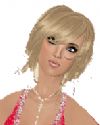|
ESL Forum:
Techniques and methods
in Language Teaching
Games, activities
and teaching ideas
Grammar and
Linguistics
Teaching material
Concerning
worksheets
Concerning
powerpoints
Concerning online
exercises
Make suggestions,
report errors
Ask for help
Message board
|
ESL forum >
Grammar and Linguistics > Grammar question: adjective, superlative, ...
Grammar question: adjective, superlative, ...
|
|

mjotab

|
|
And what can you tell me about the word "curious" Yesterday I read "curiouser and curioser" (novel by Harlan Coben, said by the character Win). Couldn �t it be " more and more curious"?
|
13 Jun 2009
|
|
|

donapeter

|
According to my English grammar knowledge, it is "MORE CURIOUS". I am not an English native speaker and I don �t have any contacts with English native speakers, so I don �t know how they speak. I only know only non-native sloppy English speakers. 
D
|
13 Jun 2009
|
|
|

Stellam

|
|
Never heard "curiouser". Doesn �t sound correct. But who knows? I �m not an English native speaker either.
|
13 Jun 2009
|
|
|

ESL-AugsburgerArt

|
|
Lewis Carroll famously used the phrase "curiouser and curiouser" in Alice �s Adventures in Wonderland, shortly after the cake labeled "EAT ME" had its effect on Alice:
�Curiouser and curiouser! � cried Alice (she was so much surprised, that for the moment she quite forgot how to speak good English);
As Carroll noted in the text, it �s not considered correct. If the word "curiouser" is used at all, it is probable done as a tongue-in-cheek allusion to this work.
Multi-syllabic words do not get the �er � ending in the comparative; curious becomes more curious.
Monosyllabic words (fat, short) take the �er � ending in the comparative (fatter, shorter) as do two-syllable words that end in �y � (easy and tasty become easier and tastier). Everything else becomes �more � of whatever it is. |
13 Jun 2009
|
|
|

rach81

|
|
Hi again,
for two-syllable adjectives the rule is you may either use -er or more to form the comparative degree. If the word sounds akward when adding -er then more should be used. like in tasty the comparative is tastier. But for curious for curiouser it doesn �t sound good.
hugs
rach c",) |
13 Jun 2009
|
|
|

Stellam

|
AugsburgerArt :
I found your explanation most illuminating. Thank you.
Stella
|
13 Jun 2009
|
|
|

Apodo

|
|
But curious does have 3 syllables. Kyoo - ri - us.
ESL-AugsburgerArt explains the origin of �curiouser � exactly.
|
13 Jun 2009
|
|
|

rach81

|
|
Hi Apodo,
Oppss!!!! sorry my mistake. You �re right it �s three syllables. then Definitely it �s more curious.
rach c",) |
13 Jun 2009
|
|
|

Jayho

|
|
Well, I�m going to answer two questions in one: James is more curious than his fatter brother!
BTW, it�s quite impolite to say fatter in real speaking. My students use it all the time and they�re likely to get socked one if they tell a native that they�re fat!
|
13 Jun 2009
|
|
|

juliamontenegro

|
Sweetie,
You do have to make changes to the exercise.
It could be: "Complete these sentences using the correct form of the adjective." according to what Apodo said.
Good luck!
|
14 Jun 2009
|
|
< Previous
1
2
3
Next >
|
















